 Have you seen the T-shirt slogan: Dads don’t babysit (it’s called “parenting”)? This slogan calls out the gendered language we often still use to talk about fathers.
Have you seen the T-shirt slogan: Dads don’t babysit (it’s called “parenting”)? This slogan calls out the gendered language we often still use to talk about fathers.
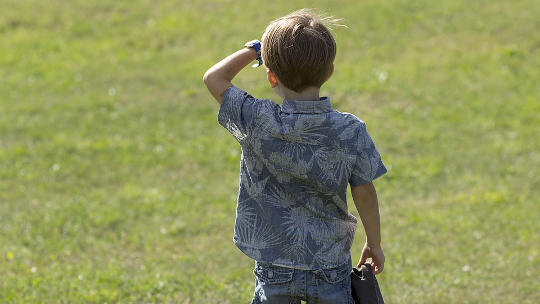 In the absence of a strong father figure, boys and young men pick up on the patriarchy of society to mold them; they become victims perpetuating their own woundedness. By this estimation, all men are victims of the sins of the fathers, as the Bible tells it, visited generation upon generation.
In the absence of a strong father figure, boys and young men pick up on the patriarchy of society to mold them; they become victims perpetuating their own woundedness. By this estimation, all men are victims of the sins of the fathers, as the Bible tells it, visited generation upon generation.
 Pain during labour and childbirth is a complex combination of physical and psychological factors. Pain comes from the uterus, cervix, pelvic joints and ligaments and, during the actual birth, from the vagina and perineum (the skin between the vagina and anus) stretching to accommodate the baby’s emerging body.
Pain during labour and childbirth is a complex combination of physical and psychological factors. Pain comes from the uterus, cervix, pelvic joints and ligaments and, during the actual birth, from the vagina and perineum (the skin between the vagina and anus) stretching to accommodate the baby’s emerging body.

Five reasons baby boxes are more than cutesy cardboard containers, from offering a safe place to sleep to giving an equal start in life.
 Fully 92 percent of American teenagers go online daily. More than half of them do so several times a day and a quarter are online “almost constantly.”
Fully 92 percent of American teenagers go online daily. More than half of them do so several times a day and a quarter are online “almost constantly.”
 Official guidelines say kids aged five to 18 years should spend no more than two hours a day using screens, and children under two years should not use a screen at all. But in a world dominated by tablets and mobile phones, these limits are proving to be virtually impossible to uphold.
Official guidelines say kids aged five to 18 years should spend no more than two hours a day using screens, and children under two years should not use a screen at all. But in a world dominated by tablets and mobile phones, these limits are proving to be virtually impossible to uphold.
 "Analysis revealed that girls' mathematics anxiety was not related to the level of their mothers' engagement in STEM careers, nor was it related to gender equality in the countries we studied," says David Geary.
"Analysis revealed that girls' mathematics anxiety was not related to the level of their mothers' engagement in STEM careers, nor was it related to gender equality in the countries we studied," says David Geary.
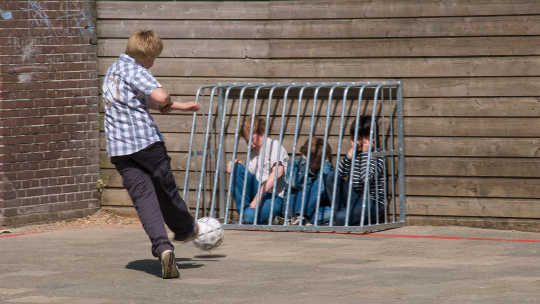 The tragic consequences of bullying have become a regular part of the news cycle. In April, an eighth grade girl in Missouri and a sixth grade boy in Pennsylvania committed suicide. Bullying was an important factor, according to their families.
The tragic consequences of bullying have become a regular part of the news cycle. In April, an eighth grade girl in Missouri and a sixth grade boy in Pennsylvania committed suicide. Bullying was an important factor, according to their families.
 Even armed with a Ph.D. in developmental psychology, I remember the frightening first moments after bringing my newborn daughter home from the hospital. I wasn’t sure what to do – and not at all confident that I was capable of being the parent she needed me to be.
Even armed with a Ph.D. in developmental psychology, I remember the frightening first moments after bringing my newborn daughter home from the hospital. I wasn’t sure what to do – and not at all confident that I was capable of being the parent she needed me to be.
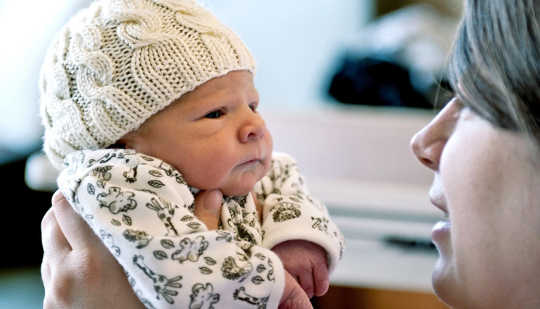 "The biological clock can get thrown off in these women because they are up so much in the middle of the night," says Katherine Sharkey.
"The biological clock can get thrown off in these women because they are up so much in the middle of the night," says Katherine Sharkey.
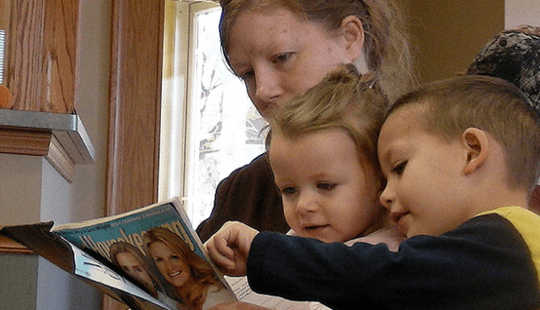 If you are a parent or a teacher, you most probably read stories to young children. Together, you laugh and point at the pictures. You engage them with a few simple questions. And they respond.
If you are a parent or a teacher, you most probably read stories to young children. Together, you laugh and point at the pictures. You engage them with a few simple questions. And they respond.
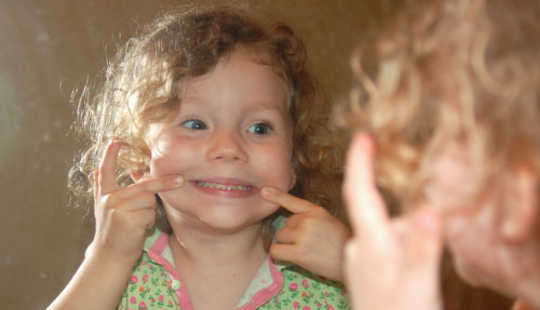 Emotions play a critical role in everyday life. The ability to express, regulate, and understand one’s own and others’ emotions – known as emotional competence – is linked to good social skills and to doing better at school.
Emotions play a critical role in everyday life. The ability to express, regulate, and understand one’s own and others’ emotions – known as emotional competence – is linked to good social skills and to doing better at school.
 It will come as no surprise that some new fathers will be anxious or highly stressed. However, most people believe only new mums suffer postnatal depression. This is not the case.
It will come as no surprise that some new fathers will be anxious or highly stressed. However, most people believe only new mums suffer postnatal depression. This is not the case.
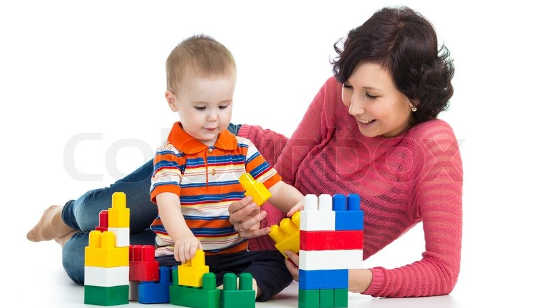 "The ability of children to sustain attention is known as a strong indicator for later success in areas such as language acquisition, problem-solving, and other key cognitive development milestones," says Chen Yu.
"The ability of children to sustain attention is known as a strong indicator for later success in areas such as language acquisition, problem-solving, and other key cognitive development milestones," says Chen Yu.
 In both the music and control groups, we gave babies experiences that were social, required their active involvement, and included body movements—these are all characteristics that we know help people learn...
In both the music and control groups, we gave babies experiences that were social, required their active involvement, and included body movements—these are all characteristics that we know help people learn...
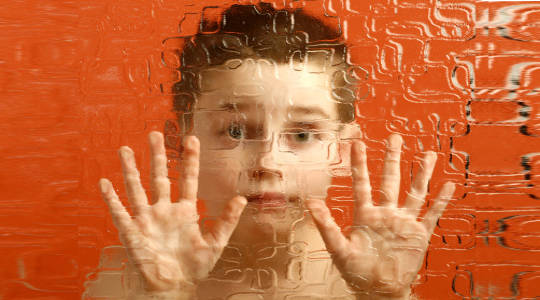 A recent survey of pediatricians found they often lacked enough information to accurately diagnose an autism spectrum disorder (ASD) in children. ASD is an important diagnosis not to miss. But it is equally important not to make the diagnosis when it is not truly present.
A recent survey of pediatricians found they often lacked enough information to accurately diagnose an autism spectrum disorder (ASD) in children. ASD is an important diagnosis not to miss. But it is equally important not to make the diagnosis when it is not truly present.
 Gender is generally thought of as a stable trait: we are born male or female and we stay that way as we grow from small children to adults. It turns out that for young children, initial concepts about gender are quite
Gender is generally thought of as a stable trait: we are born male or female and we stay that way as we grow from small children to adults. It turns out that for young children, initial concepts about gender are quite
 Sleep plays a fundamental role in the way we learn. Emerging evidence makes a compelling case for the importance of sleep for language learning, memory, executive function, problem solving and behaviour during childhood.
Sleep plays a fundamental role in the way we learn. Emerging evidence makes a compelling case for the importance of sleep for language learning, memory, executive function, problem solving and behaviour during childhood.
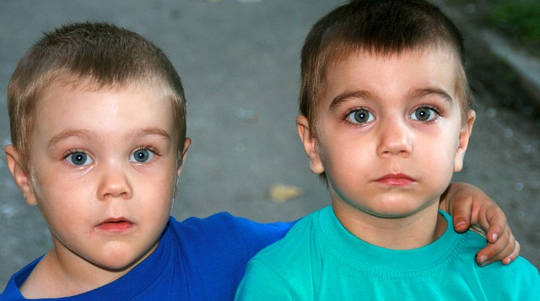 The recent report from northern Hòa Bình province in Vietnam of twins born to two different fathers has been making headlines around the world. The father of the twins took the infants for DNA tests where it was revealed he was the biological father to just one of them - the other twin was fathered by another man.
The recent report from northern Hòa Bình province in Vietnam of twins born to two different fathers has been making headlines around the world. The father of the twins took the infants for DNA tests where it was revealed he was the biological father to just one of them - the other twin was fathered by another man.
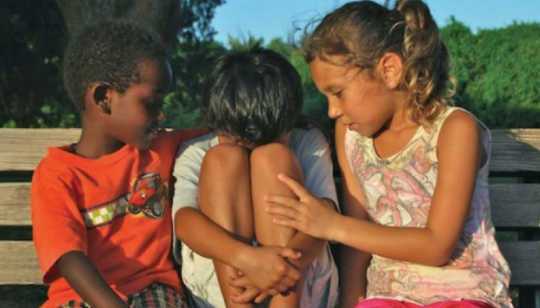 Empathy, the ability to understand others and feel compassion for them, is arguably the most defining human quality – setting us apart from smart machines and even other animals. Without it, we couldn’t function in social areas such as the schools, court rooms and office workplaces that are the cornerstones of our society.
Empathy, the ability to understand others and feel compassion for them, is arguably the most defining human quality – setting us apart from smart machines and even other animals. Without it, we couldn’t function in social areas such as the schools, court rooms and office workplaces that are the cornerstones of our society.
 "There is a belief that young kids can self-regulate their food intake," says Barbara Rolls. "This study shows those signals are really easy to override."
"There is a belief that young kids can self-regulate their food intake," says Barbara Rolls. "This study shows those signals are really easy to override."
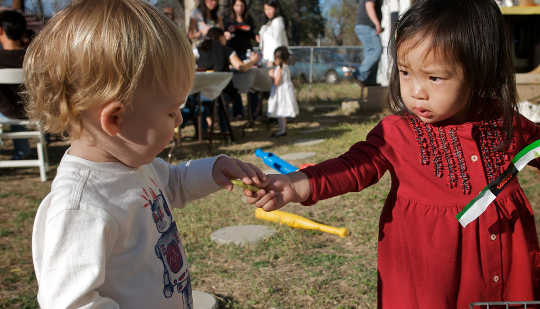 Should a teacher reward a whole class for the good deeds of one student? What about the other side of the discipline picture: should a whole class be punished for the misdeeds of just a few students?
Should a teacher reward a whole class for the good deeds of one student? What about the other side of the discipline picture: should a whole class be punished for the misdeeds of just a few students?
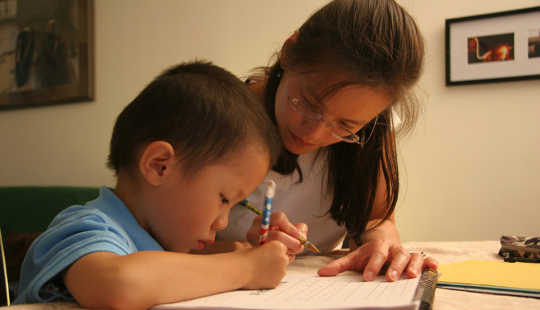 We typically think of writing as something that is out of reach for preschool children. After all, young children can’t write recognizable letters, and they can’t spell words.
We typically think of writing as something that is out of reach for preschool children. After all, young children can’t write recognizable letters, and they can’t spell words.














